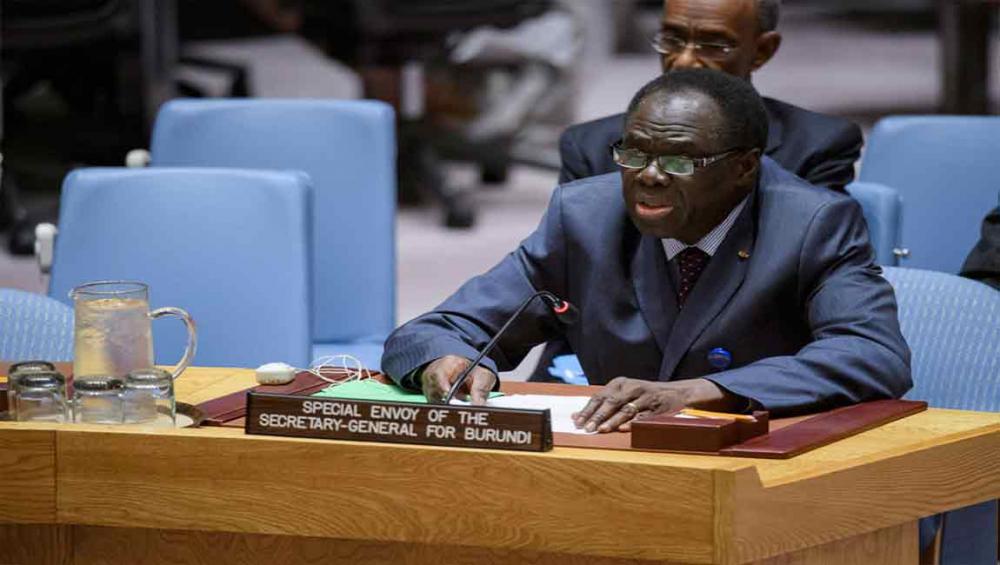Just Earth News | @justearthnews | 27 Jul 2017

Manuel Elias
Addressing the UN Security Council, Michel Kafando, recounted his recent efforts to support the inter-Burundian dialogue, including through a visit to President Pierre Nkurunziza last month.
“We would like to see an atmosphere of peace in Burundi. But under what conditions and at what price can this be achieved?” he asked the Council in New York.
“The first requirement is to give priority to inclusive dialogue, a prerequisite for any resolution of the crisis. It becomes imperative that the Government of Burundi accedes to the request of the countries in the sub-region and the African Union, supported by the United Nations, to engage in an inclusive dialogue; that means involving the exiled opposition as well as the opposition in the country.”
He underscored the importance of regional efforts, in particular by former Tanzanian President Benjamin Mkapa, the East African Community's mediator heading the inter-Burundian dialogue.
Mkapa was due to brief the Council alongside Kafando but was unable to due to health reasons, the UN official said.
Kafando noted that authorities in Burundi and the opposition have diverging views on the political situation in the country, in a difficult socio-economic context, but consider the situation calm and seek to preserve their national sovereignty in managing internal affairs.
He did note, however, that representatives of the political opposition and some of the civil society are concerned about what they call “authoritarian” moves by the Government.
Kafando had met with civil society leaders and political parties during his second recent visit to Burundi, from 7 to 13 July.
Highlighting his discussions during that visit, Kafando reiterated calls for greater involvement of the regional and the international community in favor of an inclusive dialogue, without preconditions, and with the participation of all Burundians.
“I deeply believe in the sub-region's commitment to work for peace in Burundi with the support of the African Union and I strongly recommend that the United Nations accompany them and resolutely support these efforts. In the end, even if we still need a little patience, we will certainly arrive at a dynamic compromise,” the Special Envoy said.
In late June, Assistant Secretary-General Tayé-Brook Zerihoun told the Council that the security situation in the country was “fragile” and noted a series of grenade attacks in the capital, Bujumbura.
Insecurity has been a concern in the country since 2015, when violence emerged around the President's decision to run for a third consecutive term. Some three million people are in need of humanitarian aid, with some 2.6 million others hungry, and more than 600,000 displaced from their homes.